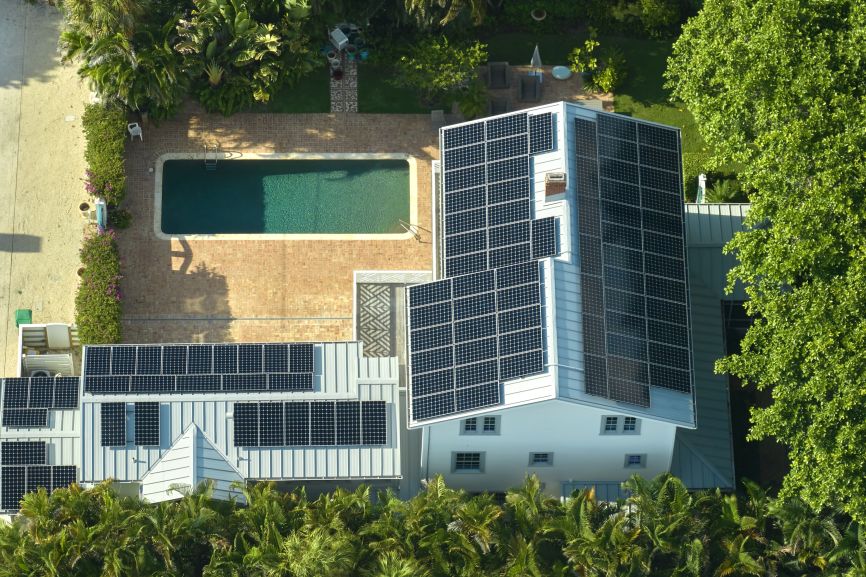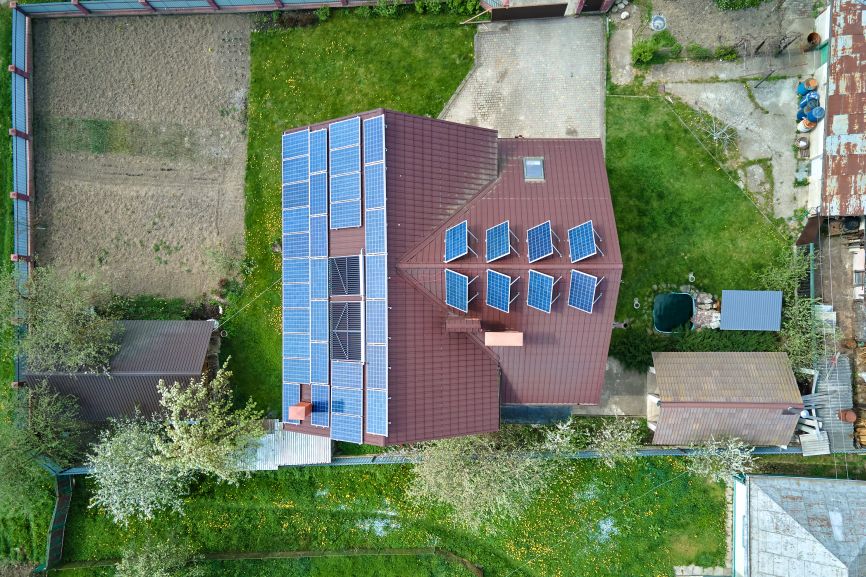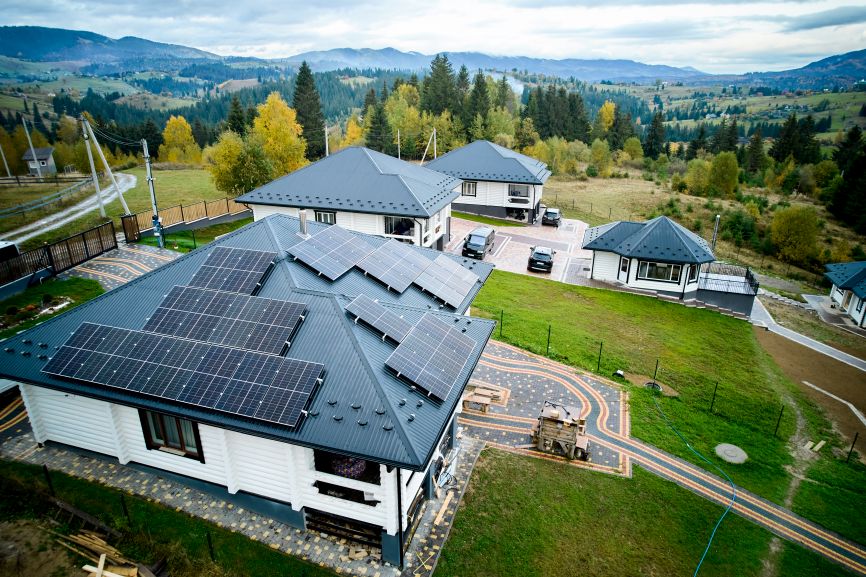You’ve seen the ads. You’ve heard the neighbors talk. Solar panels are saving people hundreds — sometimes thousands — of dollars a year. But then a simple question pops up in your head:
“Do solar panels work at night?”
It’s a fair question. After all, the sun doesn’t shine 24/7, and you don’t stop using electricity just because it’s dark outside. Your fridge keeps running. Your phone keeps charging. Your lights stay on.
So what really happens when the sun sets? Do your panels keep producing? Do you suddenly start pulling from the grid? And what about those batteries everyone keeps mentioning?
Here’s the truth most solar companies won’t spell out clearly:
- Solar panels don’t generate power at night — but that doesn’t mean your home goes dark.
- There are smart ways to keep your home running 24/7, and some will even put money back in your pocket.
- With the right system design, you’ll barely notice the difference between day and night.
In this guide, you’ll discover exactly how solar works once the sun goes down, why homeowners with batteries and net metering sleep easier, and how to make sure your investment delivers power — and savings — around the clock.
But before we talk about nighttime power, let’s clear up how solar panels actually generate electricity during the day…

How Do Solar Panels Work During the Day?
If we’re going to understand why solar panels don’t work at night, we need to look at how they do work when the sun is shining. And here’s where the science gets surprisingly simple.
The Photovoltaic (PV) Effect Explained
At the heart of every solar panel is a set of photovoltaic cells — ultra-thin wafers, usually made of silicon. These cells aren’t magical. They’re just very good at one thing: turning sunlight into usable electricity.
When sunlight hits a solar panel, tiny particles of light called photons knock electrons loose inside the silicon. Those electrons create an electric current, and your inverter transforms it into clean, usable power for your home.
Think of it like a one-way street: sunlight goes in, electricity comes out. But here’s the catch — no sunlight, no electrons moving. No electrons moving, no power. That’s why nighttime is a natural pause for your panels.
Which leads us to another question: how much power can they really produce during the day, and when are they at their best?
When Solar Panels Generate the Most Electricity
Not all daylight is created equal. Your panels will generate the most electricity during “peak sun hours” — generally late morning to mid-afternoon, when the sun is high and direct.
But here’s where efficiency factors sneak in:
- Roof angle & direction: South-facing roofs in Massachusetts capture more sunlight than shaded or north-facing ones.
- Weather conditions: Even on cloudy days, panels still produce — just at reduced output.
- System size & quality: A properly designed system ensures you’re not wasting potential production.
In other words, solar panels spend the day building your energy supply — storing credits through net metering, charging a battery if you have one, or directly powering your home. Once the sun sets, that supply is what carries you through the night.
And since cloudy days often confuse people, let’s compare: do panels behave the same in cloudy weather as they do at night? Spoiler — not even close.
How Do Homes with Solar Panels Have Power at Night?

If solar panels stop producing once the sun goes down, then why don’t solar-powered homes suddenly go dark at 7 p.m.? The answer is simple: your daytime energy doesn’t just vanish — it gets stored or credited for later use. Let’s break down how.
Grid-Tied Systems and Net Metering
Most homes in Massachusetts (and across the U.S.) are grid-tied. That means during the day, when your panels are working overtime, any extra electricity flows back into the utility grid.
Here’s the magic: with net metering, the utility keeps track of those contributions and gives you credits. At night, when you’re pulling electricity from the grid, those credits kick in to cancel out or reduce your bill.
It’s like having your own energy checking account: deposit solar power during the day, withdraw at night — often without paying a cent more.
But what if you don’t want to rely on the grid at all? That’s where solar batteries come in.
Solar Batteries (Storing Energy for Night Use)
Instead of sending all that extra daytime power back to the utility, you can store it in a battery system. When the sun sets, your home simply pulls power from the battery.
- Lithium-ion batteries (like the Tesla Powerwall) are the most common: compact, efficient, and long-lasting.
- Lead-acid batteries are less expensive but bulkier and lower in lifespan.
Why go this route?
- Energy independence: You’re less dependent on the utility company.
- Blackout protection: Keep the lights on even if your neighborhood goes dark.
- Peace of mind in New England winters: Imagine a snowstorm takes out the grid — but your battery keeps your heat running.
For many Massachusetts homeowners, that resilience is worth every penny.
But what if you want the best of both worlds — the cost savings of net metering and the security of backup storage?
Hybrid Solar Systems (Grid + Battery)
A hybrid setup lets you stay connected to the grid and have a battery on-site. During the day, you can store energy and still get credits for excess sent to the utility. At night, you draw from your battery first — and fall back on the grid only if needed.
It’s the ultimate flexibility, reliability, and long-term ROI solution: savings when the grid is up, security when it’s down.
Ready to see if a hybrid system is right for your home? EcoSunWorks can design the perfect solar + battery setup, contact us today to get a quote.
Do Solar Panels Work at Night in Any Way?
Here’s the straight truth: no, solar panels do not actively produce electricity at night.
Why? Because the entire photovoltaic process depends on sunlight. No photons hitting the panel = no electrons moving. Without that chain reaction, your panels are basically just sitting there, waiting for sunrise.
But let’s bust a few myths that float around:
- “Do solar panels still work at night?” Not in the way you think. They can’t generate power without sunlight.
- “Can moonlight power solar panels?” Technically, moonlight is reflected sunlight — but it’s so weak that panels can’t capture enough to matter.
- “Aren’t new panels starting to work at night?” Researchers are experimenting with special materials that can capture infrared energy after dark, but these are still in the lab. For homeowners today, it’s not an option.
And what about your inverter — the device that turns panel electricity into usable home power? At night, it’s simply idle. It shuts down automatically when production stops and wakes back up at first light.
So, while the dream of nighttime solar panels makes for flashy headlines, the reality is this: solar is a daytime powerhouse, and nighttime power comes from smart storage or grid connections.
Which raises the next question: what happens if you don’t have battery storage at all?
What Happens If You Don’t Have Battery Storage?
Not every homeowner chooses to add a solar battery — and that’s okay. If your system is grid-tied without storage, here’s what happens once the sun goes down:
Your home automatically switches to using electricity from the grid. Any credits you earned during the day through net metering help offset the cost, so in many cases your bill still comes out close to zero.
The Upside
- Lower upfront cost: Skipping the battery keeps solar installation more affordable.
- Net metering support: Daytime overproduction balances out nighttime use.
The Trade-Off
- Less independence: You’re still connected and reliant on your utility company.
- Vulnerable to outages: If the grid goes down, your panels alone can’t power your home — unless you add storage.
For some homeowners, relying on the grid is enough. For others, especially in places like Massachusetts where storms are common, energy independence is worth the upgrade.
That’s why more families are looking at solar batteries — not just as backup, but as a smarter way to save and stay secure.
Benefits of Battery Storage for Nighttime Power
If you’ve ever sat through a blackout with candles and a dead phone, you already know the value of backup power. That’s exactly what solar batteries deliver — energy security and peace of mind.
Instead of feeding all your extra daytime energy into the grid, a battery stores it for you to use later. When the sun goes down — or the grid goes out — your home keeps running like nothing happened.
Real-World Benefits You’ll Notice
- Storm resilience in Massachusetts: Winter nor’easter knocks out power on your street? Your battery keeps the heat, fridge, and lights on.
- Summer peak pricing: Utilities often raise rates in the evenings when demand spikes. A charged battery lets you avoid buying expensive grid power.
- 24/7 reliability: No matter the season, you’re not left guessing when the lights will come back on.
And here’s the kicker: with time-of-use rates, batteries can even save you more money. Charge during the day when power is cheap (or free from your panels) and discharge at night when rates are highest.
It’s not just a backup — it’s a smarter way to manage energy and costs.
Explore financing options for adding a battery to your solar system and see how EcoSunWorks makes energy independence affordable.
But what if you want to maximize not just savings, but also overall performance — day and night? That comes down to designing your system right from the start.
How to Maximize Solar Energy for Day & Night Use

Solar is powerful, but like any investment, the results depend on how you set it up and use it. The good news? A few smart choices can make your system feel almost invisible — delivering savings and reliability around the clock.
Right-Sized Solar System Design
Bigger isn’t always better. Undersizing leaves you paying higher bills. Oversizing wastes money on panels you’ll never fully use. The key is a right-sized system designed for your household’s unique energy profile. At EcoSunWorks, we run custom calculations so you get maximum output without overspending.
But even the best system can do more when paired with smart habits.
Smart Energy Habits
Want to squeeze every drop of value from your panels? Time your biggest energy users with the sun. Run the dishwasher mid-day. Charge your EV in the afternoon. Wash clothes when your panels are producing most. These habits let you use free solar energy directly, reducing what you pull from the grid.
Combining Panels + Batteries + Net Metering = 24/7 Coverage
Think of it like a three-part team:
- Panels handle daytime production.
- Net metering balances your credits with the grid.
- Batteries give you backup and independence.
Together, they ensure you’re covered whether the sun is blazing, the clouds roll in, or the neighborhood loses power.
Local Incentives for Solar + Storage in Massachusetts
Here’s the cherry on top: Massachusetts homeowners can take advantage of federal tax credits, state rebates, and solar renewable energy credits (SRECs). Add a battery, and some programs even give you bonus payments for supporting the grid during peak demand.
That means your system isn’t just saving you money — it’s earning for you, too.
With the right design, the right habits, and the right incentives, solar stops being just a “daytime thing” and becomes a 24/7 advantage.
FAQs About Solar Panels at Night
Q1: Do solar panels work at night?
No — solar panels need sunlight to produce electricity, so they don’t generate power once the sun goes down. But your home won’t go dark. Instead, you’ll rely on stored energy from a battery or pull electricity from the grid using net metering credits.
Q2: How do solar panels work at night if I don’t have a battery?
If you’re connected to the grid, your home simply draws power from your utility at night. Any excess energy you produced during the day is credited back to you through net metering, which helps offset nighttime costs.
Q3: Do solar panels still work in cloudy weather?
Yes, but at reduced output. Even on cloudy or rainy days, your panels capture diffused sunlight and generate electricity — just less than on clear, sunny days. At night, however, there’s no production at all.
Q4: Is it worth adding a solar battery for night use?
For many homeowners, yes. A battery gives you energy independence, protection during blackouts, and the ability to avoid higher evening rates with time-of-use pricing. In states like Massachusetts, you can also qualify for additional incentives when you install storage.
Q5: Can solar panels ever work at night with new technology?
Researchers are exploring panels that can capture infrared or nighttime radiation, but these aren’t available for homeowners yet. For now, the reliable solution is pairing panels with batteries and/or net metering.
Recap – When Do Solar Panels Work?
So let’s bring it all together.
- During the day: Solar panels are in their element, converting sunlight into clean electricity. Even on cloudy or rainy days, they’ll still produce — just at lower levels.
- At night: Panels stop producing, but that doesn’t mean your home loses power. Instead, you rely on stored energy from a battery or draw seamlessly from the grid using net metering credits.
The bottom line? A well-designed solar system ensures your home is covered 24/7. The panels do the heavy lifting during the day, while batteries or net metering carry you smoothly through the night.
Curious how much solar can save you day and night in Massachusetts? Request a Free Quote from EcoSunWorks or call us.
